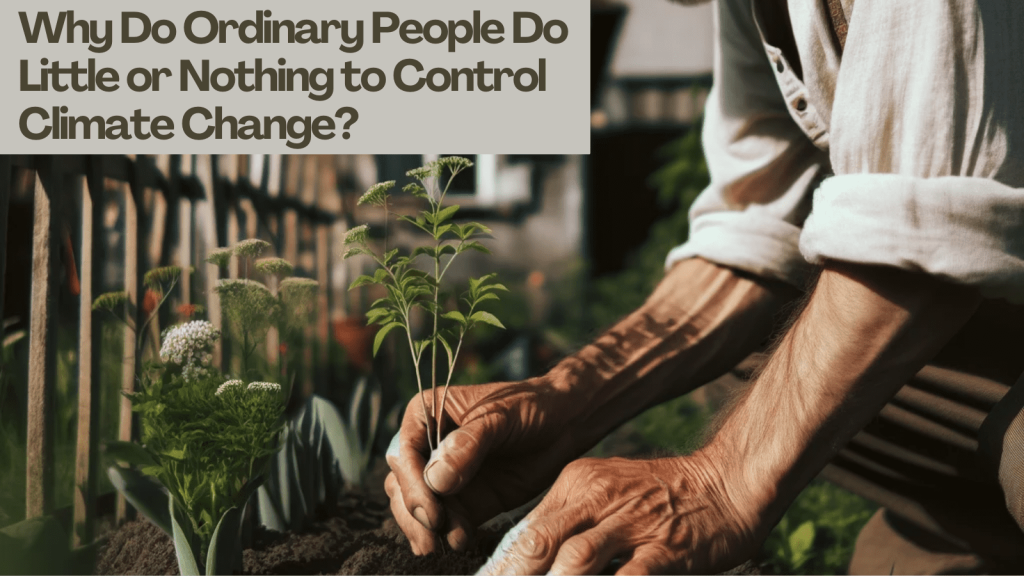
Poll: Why do ordinary people do little or nothing to control climate change?
An intriguing question, indeed, and one that was the centrepiece of our latest LinkedIn poll. With climate change being a hot-button issue, it’s essential to delve into the mindset of the ‘ordinary’ individual. What are their thoughts, and more importantly, their actions towards this global challenge?
Poll results
| What should I do? | 73% |
| What’s the point? | 7% |
| Not my job | 13% |
| I have many other problems | 7% |
For this poll, 15 LinkedIn members voiced their opinions, providing a glimpse into the common perceptions about individual roles in climate action.
The poll results are revealing, aren’t they? A whopping 73% ponder over ‘What should I do?’, indicating a sense of uncertainty or lack of direction. This is a critical insight. It suggests that while there is awareness, there’s a significant gap in knowing how to translate this awareness into action. Only a small percentage dismiss the issue as irrelevant or not their responsibility.
Small Steps, Big Impact.
The truth is, individual actions do matter in the grand scheme of climate change. From choosing sustainable diets and reducing water usage, to demanding corporate responsibility and investing in green businesses, each action creates ripples. Yet, the majority are stuck at the crossroads of intention and action, pondering ‘What should I do?’
Driving Change
And here’s my take on it. As someone deeply entrenched in climate tech and sustainability, I see this gap not just as a challenge but as an opportunity. We need to bridge the gap between awareness and action. How? By providing clear, actionable steps that individuals can take. It’s not just about the grand gestures; it’s about the everyday choices – the products we buy, the food we consume, the investments we make. These choices collectively shape the market and influence the big players.
Net Zero by Narsi
Insights and interactions on climate action by Narasimhan Santhanam, Director - EAI
View full playlistFinally,
While the poll reflects a sense of bewilderment among many, it also highlights the untapped potential of individual action. We are not just passive bystanders; we are active participants in this narrative. The existential threat of our time is not limited to the actions of industrial giants. Each one of us plays a part, and it’s high time we acknowledge and embrace our role in shaping a sustainable future. After all, the key to impactful change lies within ourselves and our readiness to confront uncomfortable truths.
Your thoughts? Feel free to share your views.




 Our specialty focus areas include
Our specialty focus areas include

 India Big Business Opportunities in Climate Tech – List – EAI
India Big Business Opportunities in Climate Tech – List – EAI

